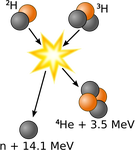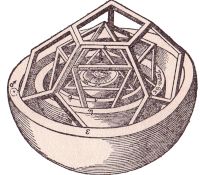
Unlike those who believe that money is a wealth, unless it is only a means of having it, energy is the essential basis of our economy. Indeed we can remember the technological revolutions, as the taming of fire and animal, then the energy provided by the sun and water, then fossil energies, finally the evolution towards the science of isotopes, nuclear energy, which constitutes material.
Why energy ?
Every energies are natural, and that nature also contains the whole universe, which we are now trying to explore. Humans only handle nature through science and their creativity.
So we can be a lot on the planet only thanks to the energies allowing to:
• Heat to prevent disease.
• Overpower nature with industrial tools and science.
• Give us time to think about changing our science and our industry.
So we can say that our economy is based on energy, not on money. In fact, the atoms, which are in materials, are inert energy.
Fire
At the beginning we needed big spaces to feed ourselves, because we lived of the hunting, then of the picking. Hunting without the energy provided by the fire did not permit to survive along enough, because the fire allowed us to heat the food to keep it longer. We quickly became sedentary with the gathering, but our first cities were tiny, because it was at that time a surface of 10 km2 per human to survive thanks to the fire.
The biomass energies, which we estimate at 4,000 in theoretical energy production, with the use of fire, allowed us to know a first paradigm. We have known the solar, which allows some way to know the efficiency with windmills and solar ovens.
Irrigation and breeding allowed us to increase the gains per area. Then the writing, necessary for finance allowed to put in writing the reflections of our scientists and thinkers, some of whom, like Aristotle, defined that the real democracy, therefore participative, allows to optimize a society to serve the human. The Greeks have defined that a society based on the slavery of the people does not serve the human, therefore runs to its loss. Thus the slaves do not create enough work for the rest of the population, leading to famines and an implosion of society.
The energy of the sun
You should know that, according to scientists and the book defining the economy, Lyndon Larouche, the energy provided by the sun is 0.2 kW / m2. The windmill was thus a beautiful invention, because it allowed to control a part of the energy provided by the sun. This energy was directly transformed into work tools, which did not need to work full time. Thus bread has since been more easily assimilated. So, a wind turbine will not be able to provide a work as optimized as a past windmill. Indeed a wind turbine will turn the wind into electricity, itself again transformed into tool work or heat. There is energy loss doing that.
The photovoltaic energy is over-financed in 2011. It is worse than agrofuels. At least, with agrofuels, there are plants, while photovoltaic panels replace plants. Thus expensive solar greenhouses, set up by finance, prevent plants that are inside to push at best. In addition to the energy cost of a photovoltaic panel is considerable, while, remember, the energy provided by the sun is 0.2 kW / m2. Finally, like wind turbines it is better to use solar ovens, or hot water solar panels, yet inefficient, rather than passing through electricity.
Engines
At the time of the first industrial revolution, we found denser sources of energy than biomass, such as coal, worth 8,000, at the first industrial revolution. Then the oil, worth 11 000, then the liquefaction of the gas, worth 12 500. The coal, which nevertheless allowed less slavery, is very polluting and radioactive with the carbon 14. It is intended to replace the nuclear , according to pseudo-ecologists. Indeed, solar energies need coal for manufacturing, but also for times when the sun is not present enough.
The engine has, then, allowed better control of nature. We have been able to carry out great works to store water and then use it by inventing hydroelectricity. Every dams we built then brought nature unprecedented expansion. It should be noted that there is still major work to be done, including changing the way of large rivers, going directly to the sea, so redirecting them to deserts, currently used for some livestock, unfortunately.
Fission then fusion
In 1942 the fission of uranium, worth 1,000,000,000, was discovered. It was therefore intended to be used afterwards. This energy is not sufficiently dense and stable compared to the thorium-uranium fission, which could have been used from the beginning of the nuclear reactors.
Lyndon Larouche, the American scientist and economist who determined the actual crisis from the 1950s, says that nuclear is certainly expensive to create reactors, but that the energy coming from atoms, and no longer links to within the molecules, allows to release a considerable energy, allowing enough energy not only for the work of our tools, but also of our heating. Knowing that the science of isotopes and therefore of atoms gets more energy than the science of chemical bonds and molecules, we can therefore have a lot of energy by breaking or even fusing atoms.
Ecologists agree that fusion is ecological. Only what many do not say or do not know that the steps that lead to the merger will burn the waste of the previous generation. This is why that EPRs do not create a new generation of plants. These plants are uranium plants.
Nuclear fission should have been that of thorium, 4 times more present than uranium, allowing power plants that existed, producing 4 times less waste 100 to 10,000 times less durable for the most part. These Thorium plants were tested in the 1960s in Oak Ridge for 4 years. Molten salt reactors already existed and allowed less risk.
Thus the next generation plants can be stopped much more easily than currently. Thorium should have been a choice turning our countries towards peace. The only objective of the fission is to set up nuclear fusion, using hydrogen or even more easily helium-3 and deuterium, to burn the waste from nuclear fission.
Nuclear waste can in fact become stable again with the MYRRHA belgian project. In other words, waste can return to a normal atoms. The thorium energy is the most stable known. Thorium reactors such as the mini-FUJI and an old German project can be stopped by producing less waste or even recycling waste. Nuclear energy is used in thirds. However the remaining 2 thirds would heat cities with minimal loss. We could also charge the hydrogen or fuel cell cars. Technology now allows this.
Thorium-uranium could reuse atomic bombs, to produce energy with plutonium. Better this time it would improve nature by greening the deserts, including the desalinization of seawater near the coast and pumping mass above the Sahara. Indeed water goes below the Sahara to go into the sea.
There is no way in any way to lower the production of energy, otherwise most clean with thorium and MYRRHA. Yet the world’s population can still rise to 25 billion people. Yet depopulation has begun and demographic curves are declining. Finance is creating a genocide by returning to less dense energies, therefore less useful.
The danger of plutonium
By discovering new radioactive isotopes in the 1960s, researchers have been turned up towards the production of plutonium, the waste that allows nuclear weapons, which is now useless because most of the powerful countries have it. Our policies acting more like children do not understand the dangers of this power. Or they only know them after thinking about it, like Paul QUILÈS. Paul QUILÈS tells that nuclear disarmament implies active cooperation between countries, based on utopia. Larouche speaks of development.
Energy conversion
We transform energies to other energies so we can use them. There is loss with every conversion. Nuclear power makes it possible to do what we already do, with additional possibilities. Thermal is central using energy. We can go from one energy to another with losses. For example, chemicals, mechanics and nuclear power make it possible to create electricity, not in equivalent quantities. The electric is used again towards other energies.
Energy making and growth are intimately linked. The longest energy sources of life are uranium with 300 years of duration, coal with 800 years of duration for the moment, and thorium-uranium with a life of 10,000 years if put it up right now. These energies can then be replaced by fusion. The fusion torch will recycle waste very easily.
Sources
1. https://en.wikipedia.org/wiki/Thorium_fuel_cycle
2. https://larouchepac.com/sites/default/files/So_You_Wish.pdf – economy book
3. http://www.geowiki.fr/index.php?title=Monazite-%28Ce%29
4. http://www.mindat.org/min-2752.html
My Notes
Research on thorium.
